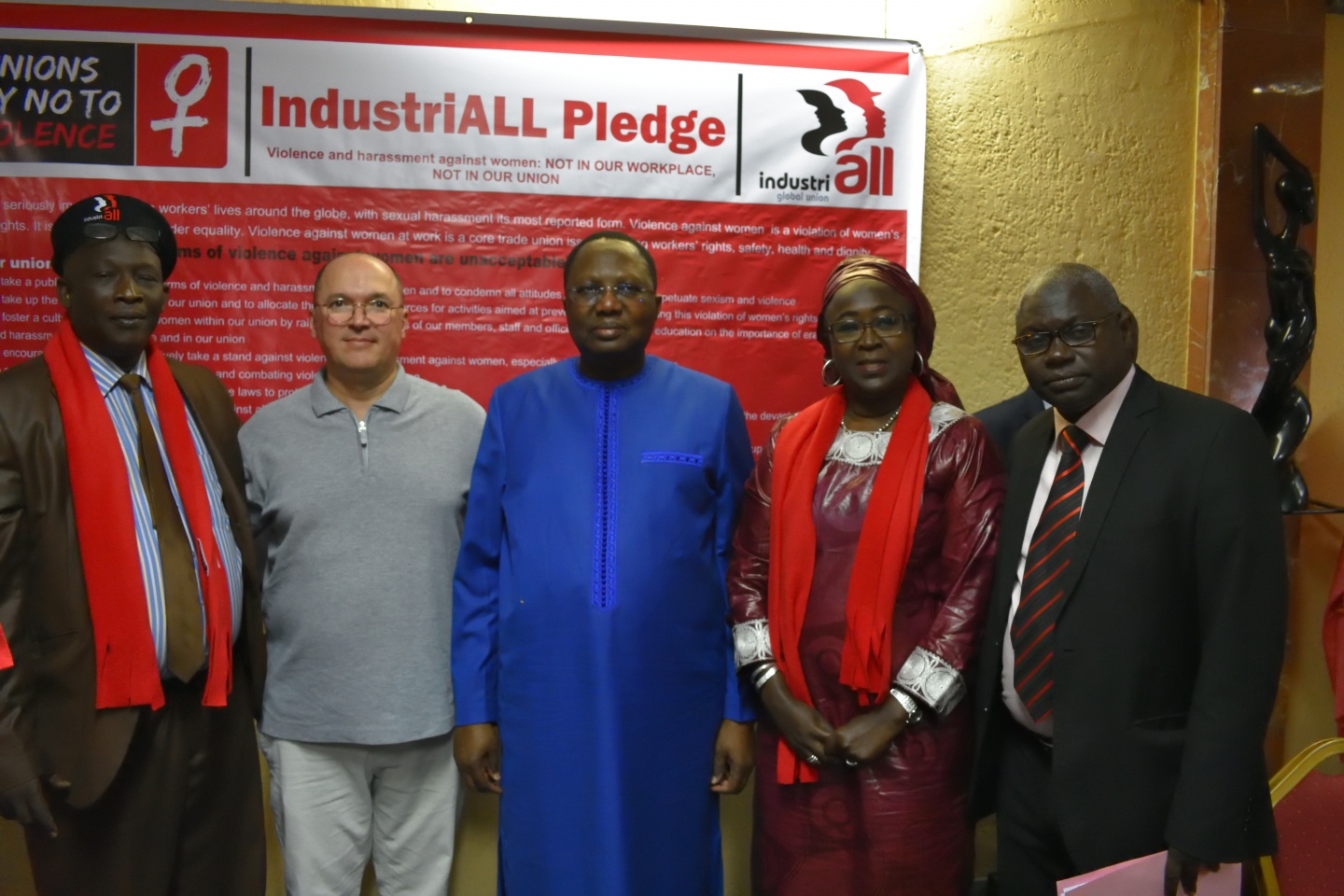16 April, 2018IndustriALL Global Union general secretary Valter Sanches has urged affiliates in Sub Saharan Africa to rethink development strategies for the continent, and to engage their governments on sustainable industrialization.
Sanches spoke at a Sub Saharan Africa regional executive meeting, in Dakar, Senegal on April 12, to affiliates from Burkina Faso, the Democratic Republic of Congo, Kenya, Ghana, Ivory Coast, Mauritius, Mozambique, Namibia, Nigeria, Senegal, South Africa, Tanzania, Uganda, Zambia and Zimbabwe.
He emphasized that trade unions have to prepare as the global economy moves to newer technologies that need different raw materials from Africa. Decreased demand for some minerals and for oil and gas means that jobs will be lost in those sectors, resulting in governments getting less revenue. Investing more in manufacturing is an essential strategy for the future.
Sanches said: “Opportunities still exist as the continent has rare earth minerals including cobalt, lithium, zinc and nickel that are in high demand. However, these have to be mined responsibly, and this is part of our campaign against Glencore’s behaviour at cobalt mining operations in the Democratic Republic of the Congo and Zambia”.
Sanches also met with the Senegalese Minister of Labour and Social Dialogue Samba Sy to deliver the same message. He was accompanied by the regional secretary for Sub Sahara Africa, Paule France Ndessomin and general secretaries from local affiliates, Seyne Ndiaye (SUTIDS), Ousmane Diop (SYNTICS) and Doudou Cisse (SNTIC).
Recent developments show that in a few years – as the world moves towards electric cars – the demand for petrol and diesel cars will slump. Some European cities have even already announced moves to ban combustion engine cars.
Africa’s post-colonial development strategy has been centred on the extraction of raw materials for sale to Europe, America and recently China. This strategy has been dominated by multinational corporations with little role for governments, resulting in huge profits at the expense of communities and workers exploited through poverty wages. It has been easy to violate trade union rights and disrupt the livelihoods of millions of people.
In March, 44 African heads of states and governments met in Kigali, Rwanda and signed an African Continental Free Trade Area (AfCFTA). Speaking on the initiative, Sanches said:
“The announcement of AfCFTA is welcome, but IndustriALL believes in multilateralism which involves trade unions and social movements. This means governments should have included unions and social movements as key stakeholders in the free trade agreement consultations. Otherwise, we will end up with a free trade agreement that will not promote decent work but precarious conditions of employment and poor wages”.
Energy transition is another key area for Africa, with calls for the development of sustainable industrial policies that are not dependent on fossil fuels and oil and gas. Just transition plans should be put in place to protect workers’ rights and welfare, as well as redeploy workers who lose jobs due to the closure of coal mines.


